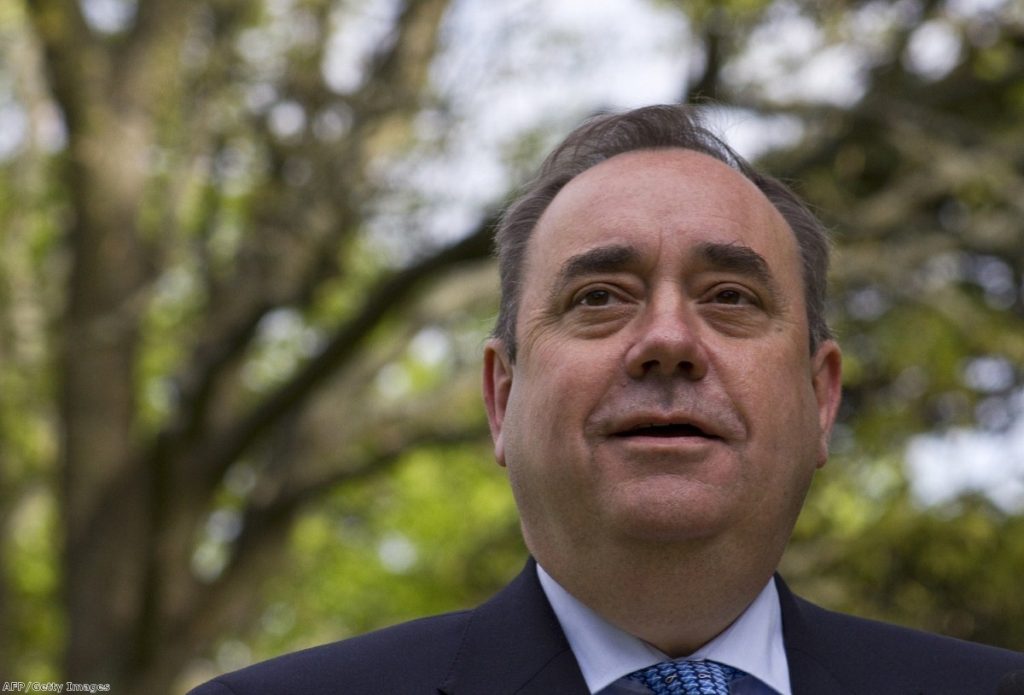SNP defiant over independence referendum
By Alex Stevenson Follow @alex__stevenson
Defiance from SNP leader Alex Salmond is setting the stage for the first major constitutional clash between the Scottish and UK parliaments.
The Scottish first minister has made clear he does not accept London's attempt to dictate the terms of the looming independence referendum.
Yesterday Scottish secretary Michael Moore told MPs he believes a referendum will not be legal unless it is approved by the Westminster parliament. Scotland Office officials are extremely confident they can strike down any attempt at a referendum in the supreme court.


Mr Salmond has rejected their arguments. He said a "difference of view" existed, citing the leading textbook of Scottish constitutional law, and called the UK government's intervention "wrong" and "Thatcheresque" in an interview on the Today programme this morning.
"The objection is the prime minister suddenly this week decided to start pulling strings and setting conditions," he said.
"This was a departure on the part of the UK government – it's not the language of respect they were using after the SNP won a majority in last year's election."
The coalition government accepts the SNP has won a mandate for a referendum to take place, after the nationalist party won an improbable overall majority under the system of proportional representation used to elect the Scottish parliament.
But it proposed yesterday that the referendum could only take place if it occurs before a specific date, and only offers voters two options – not the third 'devo-max' alternative which the SNP also want on the ballot paper.
Mr Salmond said the Scottish people deserved the right to discuss the terms of the referendum before it took place. He said it was wrong to exclude devo-max, which he said was "a legitimate point of view in Scotland".
Observers believe the nationalists would be much more likely to succeed in winning over the Scottish people to this proposal, which would see Scotland remain part of the UK but achieve sweeping financial independence from London.
"It's long since recognised that the mandate for the Scottish parliament to organise and hold the referendum – it must be a referendum built in Scotland and decided by the Scottish people," Mr Salmond added.
"As long as that's recognised, I'm sure politicians north and south of the border are capable of coming to an agreement on the ground rules for such a poll."
That negotiating position sets the first minister against the UK government's position, which seeks to impose its own terms on the referendum.
Labour leader Ed Miliband voiced his support for the government's position in this lunchtime's prime minister's questions, calling on ministers to make the legal position clear.
He demanded cross-party talks in Scotland on the Electoral Commission's role and the timing of the referendum.
"I look forward to having the debate because there have been too many who are happy to talk about the process, they don't want to talk about the substance. Let's have the debate and let's keep our country together," he said.
Yesterday evening Mr Salmond indicated he would prefer the referendum to take place in autumn 2014.
This is the first time he has been drawn on the timing of the vote. It comes after the Scotland Office indicated the referendum could take place within 12 to 18 months.
A dispute over when the referendum will take place could prevent it from occurring at all. The UK government's consultation released yesterday stated that it prefers the referendum to occur "sooner rather than later". It has not yet specified a specific date by which the referendum must take place.









